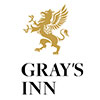*/

It is perhaps not widely known that the Inns of Court are generally very supportive of nominations and applications from members of the employed Bar, who bring distinct skills to the governance of their Inn. Several BACFI members have taken the plunge, and the aim of this article is to offer an insight into what it’s like being a Bencher, and to encourage more employed barristers, currently disproportionately underrepresented as Masters of the Bench, to consider applying to become one.
Benchers who, as readers will know, provide the governance of each of the separate Inns of Court, are primarily comprised of judges, QCs and barristers, both self-employed and employed, and are individuals of significant standing and/or who have made a major contribution to the work and life of their Inn. The name comes from when the most senior barristers were permitted to sit on the bench at moots. This class of barristers became known as ‘Benchers’ or ‘Masters of the Bench’.
Currently, after being successfully elected, a Bencher receives ‘voice and vote’ which means that they can both speak at the highest level of meetings of Benchers and also vote and receive papers on matters that need to be decided by the Inn. As part of the decision-making structure of the Inns of Court, Benchers will be involved in the governance of the Inn – which includes all issues related to the Inn including education, training, the library, finances, admittance of student members, election of other Benchers, dining and social occasions, and other issues, such as advertising. The Inns hold regular meetings for Benchers throughout the year.

To make the system of electing Benchers fairer and more transparent and to encourage applications from all those who desire to contribute to the governance of the Inn, a new procedure has been introduced in which members of the Inn post-ten years’ call apply for consideration to become a Bencher. By completing the application form you will be putting yourself forward to be considered by the Election Information Committee (EIC) which will select candidates for election based upon the number of Benchers to be elected plus 50%. This process is applicable to members of the employed Bar; self-employed Bar (juniors and silks); barristers who practise as solicitors while retaining their status as barristers; and barristers who are practising as solicitors and under the previous rules had to give up their Inn membership.
It is unlikely that those under 15 years’ call will have the necessary experience to exercise the role of a Bencher. In considering candidates, the EIC will look at the following criteria: (a) service to the Inn (past and prospective); (b) service to the profession; (c) merit; (d) standing at the Bar or within their area of expertise; (e) Circuit, if applicable; (f) speciality; and (g) an understanding of diversity issues.
Patrick Rappo, BACFI Senior Vice Chair, is the Secretary of the Employed Bar Working Group which is contributing to the review of the Bencher election process at the Inn and also looking at issues relating to the employed Bar members and their relationship with the Inn. The current number of Full (not Honorary) employed Benchers is 15. This includes Patrick Rappo, BACFI committee members Sara George and Gaynor Wood, and BACFI Vice Presidents Tricia Howse and Lucinda Orr.
For more details please contact: Tony Harking, Under Treasurer: Tony.Harking@graysinn.org.uk.

In order to be considered for election to the Bench as an Ordinary Bencher, candidates must be at least 15 years’ call. The Bench Selection Advisory Committee (BSAC) looks at the following factors: (a) high reputation in relevant area of practice or work and commitment to support the Inn once elected; and/or (b) significant contribution to the Inn which they will continue once elected; and/or (c) any significant contribution to the profession, and commitment to support the Inn once elected. Subject to these criteria, the Inn will seek to elect Masters from the most diverse pool in terms of sex, ethnicity, age, background and area of practice or work.
Self-nominations can be made (with the support of a Master of the Bench) or Masters of the Bench can make nominations. The BSAC is always very keen to put forward employed barristers who meet the criteria, as they generally receive fewer nominations from the employed Bar.
Currently there are 33 Benchers that are recorded by the Inn as being currently employed or formerly employed but now retired. This number includes BACFI Vice Presidents Christiane Valansot, Ros Wright and Austin Allison. Austin comments: ‘Becoming a Bencher was once described by a very senior Queen’s Counsel as “the only honour in the law worth having”. Perhaps a slight exaggeration, but it is indeed a great honour. It is also a wonderful opportunity to contribute to the affairs of the Inn and thereby to strengthen the profile of the employed Bar.’
For further details please contact: Lauren McHardy: L.McHardy@middletemple.org.uk.

A member of Lincoln’s Inn is eligible if in practice as a self-employed barrister or as an employed barrister (as defined in the Bar Standards Board Handbook), a judge or a legal academic and a member of at least 15 years’ call. The Advisory (Benchers) Committee (A(B)C) has recently amended the criteria for selection to provide a more transparent system for those applying and to enable the Committee to apply an auditable marking process. The primary criteria are: (a) standing in legal profession; (b) promotion of diversity; (c) past contribution to the Inn/ legal profession. Secondary criteria are: (a) experience demonstrating suitability to be a Bencher; (b) ability and willingness to serve the Inn.
At present, eight Benchers are at the employed Bar including BACFI Vice President Stephen Collier and Sharon Blackman OBE. Lincoln’s Inn recognises the skill set and knowledge that members of the employed Bar can bring to the governance of the Inn and encourages employed Bar members to submit a Bench register form to help ensure that employed barristers are better represented on the Bench. There are two Bench elections per year.
The Inn is seeking to ensure that there is representation of the employed Bar on the A(B)C who consider and select candidates and are looking at ways to improve how in-house achievement is recognised and assessed, including in commercial practice and government. Employed Bar members of Lincoln’s Inn who would be interested in getting involved in a working group looking at how this is best achieved are asked to contact Amy Higgins, Manager of Bench Administration: amy.higgins@lincolnsinn.org.uk.

There is no fixed rule on the number of years of call, nor do barrister candidates need to have taken silk. The committee responsible for considering candidates takes into account the following criteria: (a) any specific need(s) that the Inn may have at that time for Benchers who possess skills and interests necessary to perform one or more of its functions; (b) extent to which the candidate appears to possess skills and interests required by the Inn either generally or in relation to any specific need(s) identified under (a) above; (c) extent to which the candidate has demonstrated a strong likelihood that, as a Barrister Governing Bencher, they will make an active and positive contribution to the affairs of the Inn; d) extent to which the candidate has taken, or is taking, any significant part in the affairs of the Inn or, more generally in the affairs of the legal profession, whether on the Bar Council, Circuit, specialist Bar association etc.
To make a nomination/application, all barrister candidates must provide a statement of candidacy, a CV and a signed undertaking to participate fully in the management and affairs of the Inn. A nomination/application must also be supported in writing by three existing Governing Benchers (at least two of whom must be Barrister Governing Benchers).
Five years ago, the new Bench Table Orders (the governance rules of the Inn) were introduced which included a provision for the recommendation of a certain number of employed barristers and those on Circuit for direct election as Barrister Governing Benchers without the need for their names to be entered into a ballot of existing Benchers.
Once the nominations/applications have been reviewed and those considered to meet the criteria approved, the Bencher Nomination Committee will confirm the number of vacancies. The committee will then determine whether an election by ballot of the existing Governing Benchers is required and which candidates from the employed Bar (and circuits) will be recommended for direct election without the need to be entered into the ballot.
Currently there are seven employed barrister Governing Benchers at Inner Temple including newly elected Bencher, James Kitching, who is BACFI Honorary Treasurer and Rebecca Dix, BACFI committee member and representative at the Bar Council Wellbeing at the Bar Committee. Sara Lawson QC, who became an employed barrister two years ago, has recently become the Master of the Employed Bar at Inner Temple and will be giving the BACFI Denning Lecture on 8 December 2021. For further details please contact Jennie Collis Price, Head of Sub-Treasurer’s Office: jcollisprice@innertemple.org.uk.

It is perhaps not widely known that the Inns of Court are generally very supportive of nominations and applications from members of the employed Bar, who bring distinct skills to the governance of their Inn. Several BACFI members have taken the plunge, and the aim of this article is to offer an insight into what it’s like being a Bencher, and to encourage more employed barristers, currently disproportionately underrepresented as Masters of the Bench, to consider applying to become one.
Benchers who, as readers will know, provide the governance of each of the separate Inns of Court, are primarily comprised of judges, QCs and barristers, both self-employed and employed, and are individuals of significant standing and/or who have made a major contribution to the work and life of their Inn. The name comes from when the most senior barristers were permitted to sit on the bench at moots. This class of barristers became known as ‘Benchers’ or ‘Masters of the Bench’.
Currently, after being successfully elected, a Bencher receives ‘voice and vote’ which means that they can both speak at the highest level of meetings of Benchers and also vote and receive papers on matters that need to be decided by the Inn. As part of the decision-making structure of the Inns of Court, Benchers will be involved in the governance of the Inn – which includes all issues related to the Inn including education, training, the library, finances, admittance of student members, election of other Benchers, dining and social occasions, and other issues, such as advertising. The Inns hold regular meetings for Benchers throughout the year.

To make the system of electing Benchers fairer and more transparent and to encourage applications from all those who desire to contribute to the governance of the Inn, a new procedure has been introduced in which members of the Inn post-ten years’ call apply for consideration to become a Bencher. By completing the application form you will be putting yourself forward to be considered by the Election Information Committee (EIC) which will select candidates for election based upon the number of Benchers to be elected plus 50%. This process is applicable to members of the employed Bar; self-employed Bar (juniors and silks); barristers who practise as solicitors while retaining their status as barristers; and barristers who are practising as solicitors and under the previous rules had to give up their Inn membership.
It is unlikely that those under 15 years’ call will have the necessary experience to exercise the role of a Bencher. In considering candidates, the EIC will look at the following criteria: (a) service to the Inn (past and prospective); (b) service to the profession; (c) merit; (d) standing at the Bar or within their area of expertise; (e) Circuit, if applicable; (f) speciality; and (g) an understanding of diversity issues.
Patrick Rappo, BACFI Senior Vice Chair, is the Secretary of the Employed Bar Working Group which is contributing to the review of the Bencher election process at the Inn and also looking at issues relating to the employed Bar members and their relationship with the Inn. The current number of Full (not Honorary) employed Benchers is 15. This includes Patrick Rappo, BACFI committee members Sara George and Gaynor Wood, and BACFI Vice Presidents Tricia Howse and Lucinda Orr.
For more details please contact: Tony Harking, Under Treasurer: Tony.Harking@graysinn.org.uk.

In order to be considered for election to the Bench as an Ordinary Bencher, candidates must be at least 15 years’ call. The Bench Selection Advisory Committee (BSAC) looks at the following factors: (a) high reputation in relevant area of practice or work and commitment to support the Inn once elected; and/or (b) significant contribution to the Inn which they will continue once elected; and/or (c) any significant contribution to the profession, and commitment to support the Inn once elected. Subject to these criteria, the Inn will seek to elect Masters from the most diverse pool in terms of sex, ethnicity, age, background and area of practice or work.
Self-nominations can be made (with the support of a Master of the Bench) or Masters of the Bench can make nominations. The BSAC is always very keen to put forward employed barristers who meet the criteria, as they generally receive fewer nominations from the employed Bar.
Currently there are 33 Benchers that are recorded by the Inn as being currently employed or formerly employed but now retired. This number includes BACFI Vice Presidents Christiane Valansot, Ros Wright and Austin Allison. Austin comments: ‘Becoming a Bencher was once described by a very senior Queen’s Counsel as “the only honour in the law worth having”. Perhaps a slight exaggeration, but it is indeed a great honour. It is also a wonderful opportunity to contribute to the affairs of the Inn and thereby to strengthen the profile of the employed Bar.’
For further details please contact: Lauren McHardy: L.McHardy@middletemple.org.uk.

A member of Lincoln’s Inn is eligible if in practice as a self-employed barrister or as an employed barrister (as defined in the Bar Standards Board Handbook), a judge or a legal academic and a member of at least 15 years’ call. The Advisory (Benchers) Committee (A(B)C) has recently amended the criteria for selection to provide a more transparent system for those applying and to enable the Committee to apply an auditable marking process. The primary criteria are: (a) standing in legal profession; (b) promotion of diversity; (c) past contribution to the Inn/ legal profession. Secondary criteria are: (a) experience demonstrating suitability to be a Bencher; (b) ability and willingness to serve the Inn.
At present, eight Benchers are at the employed Bar including BACFI Vice President Stephen Collier and Sharon Blackman OBE. Lincoln’s Inn recognises the skill set and knowledge that members of the employed Bar can bring to the governance of the Inn and encourages employed Bar members to submit a Bench register form to help ensure that employed barristers are better represented on the Bench. There are two Bench elections per year.
The Inn is seeking to ensure that there is representation of the employed Bar on the A(B)C who consider and select candidates and are looking at ways to improve how in-house achievement is recognised and assessed, including in commercial practice and government. Employed Bar members of Lincoln’s Inn who would be interested in getting involved in a working group looking at how this is best achieved are asked to contact Amy Higgins, Manager of Bench Administration: amy.higgins@lincolnsinn.org.uk.

There is no fixed rule on the number of years of call, nor do barrister candidates need to have taken silk. The committee responsible for considering candidates takes into account the following criteria: (a) any specific need(s) that the Inn may have at that time for Benchers who possess skills and interests necessary to perform one or more of its functions; (b) extent to which the candidate appears to possess skills and interests required by the Inn either generally or in relation to any specific need(s) identified under (a) above; (c) extent to which the candidate has demonstrated a strong likelihood that, as a Barrister Governing Bencher, they will make an active and positive contribution to the affairs of the Inn; d) extent to which the candidate has taken, or is taking, any significant part in the affairs of the Inn or, more generally in the affairs of the legal profession, whether on the Bar Council, Circuit, specialist Bar association etc.
To make a nomination/application, all barrister candidates must provide a statement of candidacy, a CV and a signed undertaking to participate fully in the management and affairs of the Inn. A nomination/application must also be supported in writing by three existing Governing Benchers (at least two of whom must be Barrister Governing Benchers).
Five years ago, the new Bench Table Orders (the governance rules of the Inn) were introduced which included a provision for the recommendation of a certain number of employed barristers and those on Circuit for direct election as Barrister Governing Benchers without the need for their names to be entered into a ballot of existing Benchers.
Once the nominations/applications have been reviewed and those considered to meet the criteria approved, the Bencher Nomination Committee will confirm the number of vacancies. The committee will then determine whether an election by ballot of the existing Governing Benchers is required and which candidates from the employed Bar (and circuits) will be recommended for direct election without the need to be entered into the ballot.
Currently there are seven employed barrister Governing Benchers at Inner Temple including newly elected Bencher, James Kitching, who is BACFI Honorary Treasurer and Rebecca Dix, BACFI committee member and representative at the Bar Council Wellbeing at the Bar Committee. Sara Lawson QC, who became an employed barrister two years ago, has recently become the Master of the Employed Bar at Inner Temple and will be giving the BACFI Denning Lecture on 8 December 2021. For further details please contact Jennie Collis Price, Head of Sub-Treasurer’s Office: jcollisprice@innertemple.org.uk.


The Bar Council is ready to support a turn to the efficiencies that will make a difference
By Louise Crush of Westgate Wealth Management
Marie Law, Director of Toxicology at AlphaBiolabs, examines the latest ONS data on drug misuse and its implications for toxicology testing in family law cases
An interview with Rob Wagg, CEO of New Park Court Chambers
What meaningful steps can you take in 2026 to advance your legal career? asks Thomas Cowan of St Pauls Chambers
Marie Law, Director of Toxicology at AlphaBiolabs, explains why drugs may appear in test results, despite the donor denying use of them
Ever wondered what a pupillage is like at the CPS? This Q and A provides an insight into the training, experience and next steps
The appointments of 96 new King’s Counsel (also known as silk) are announced today
Ready for the new way to do tax returns? David Southern KC continues his series explaining the impact on barristers. In part 2, a worked example shows the specific practicalities of adapting to the new system
Resolution of the criminal justice crisis does not lie in reheating old ideas that have been roundly rejected before, say Ed Vickers KC, Faras Baloch and Katie Bacon
With pupillage application season under way, Laura Wright reflects on her route to ‘tech barrister’ and offers advice for those aiming at a career at the Bar